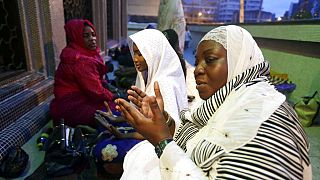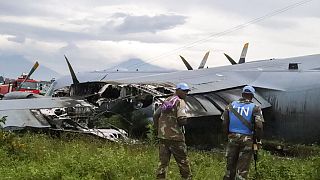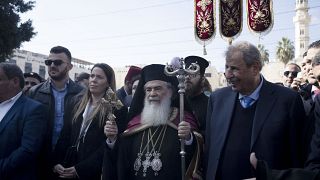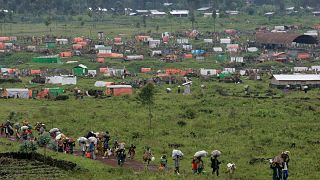West Bank
Palestinians began fasting for Ramadan on Monday as the Muslim holy month arrived with cease-fire talks at a standstill, hunger worsening across the Gaza Strip and no end in sight to the five-month-old Israel's war on Gaza.
"This month of Ramadan is different from all previous Ramadans," said Ramallah resident Bilal abed Rabbo.
There was little to celebrate after five months of war that has killed over 30,000 Palestinians and left much of Gaza in ruins.
Families would ordinarily break the daily fast with holiday feasts, but even where food is available, there is little beyond canned goods, and the prices are too high for many.
In the weekly cabinet meeting, Palestinian Prime Minister Mohammed Shtayyeh said: "The month of Ramadan comes this year, while our people in the Gaza Strip are starving and bleeding due to the genocide crimes that continue unabated. We look forward to the intervention of the International Court of Justice to stop these horrific crimes, and we ask god to make the days of the holy month days in which these crimes stop and the blood flow stops bleeding, and to be suitable for saving the hungry and sick from the danger that kills them."
Some Palestinians believe that there will be an escalation against the Israelis during the month of Ramadan.
"I believe that martyrdom operations will increase and resistance will increase, especially with regard to the issue of Al-Aqsa and preventing worshipers, especially young people, from entering and reaching Al-Aqsa Mosque for the sake of prayer," said Ramallah resident Jamal al- Siuri.
Qatar, Egypt and the United States had hoped to broker a cease-fire ahead of the normally joyous month of dawn-to-dusk fasting that would include the release of dozens of Israeli hostages and Palestinian prisoners, and the entry of a large amount of humanitarian aid, but the talks stalled last week.
Hamas is demanding guarantees that any such agreement will lead to an end to the war, while Israeli Prime Minister Benjamin Netanyahu has vowed to continue the offensive until “total victory” against the militant group and the release of all the remaining hostages.
The war has driven around 80% of Gaza's population of 2.3 million people from their homes and pushed hundreds of thousands to the brink of famine. Health officials say at least 20 people, mostly children, have died from malnutrition and dehydration in northern Gaza.
Israeli forces have largely sealed off the north since October, and aid groups say Israeli restrictions, ongoing hostilities and the breakdown of law and order have made it nearly impossible to safely deliver desperately needed food in much of the territory.
Gaza's Health Ministry said Monday that at least 31,112 Palestinians have been killed since the war began, including 67 bodies brought to hospitals in the past 24 hours.











Go to video
Gaza’s scarcity of cash fuels desperation, sparks unusual trade
01:00
Hamas gives 'positive' response to 60-day ceasefire proposal but says talks needed on implementation
01:04
Israeli airstrike on popular Gaza City beach café kills at least 30
01:03
Iran’s judiciary says at least 71 killed in Israel’s attack on Tehran prison
01:15
Egypt condemns Israeli 'aggression' against Iran, backs ceasefire
00:58
Iran: Hundreds of thousands mourn top military figures, civilians killed by Israel